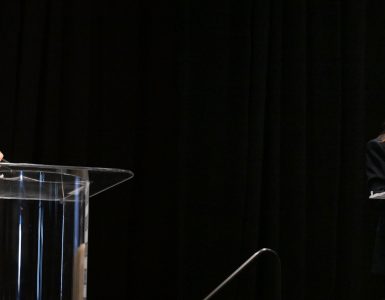Agriculture and industry in Arizona and across the country received a slight reprieve from global trade wars last week as President Donald Trump backed off a threat to increase tariffs on $200 billion worth of Chinese products. Chinese President Xi Jinping, in turn, is holding off on any new taxes on $250 billion in American goods.
The announcements came amid negotiations between top U.S. and Chinese trade officials who have been meeting for months to try to maneuver their way to a deal.
President Trump stated throughout the week that the two countries are “getting very, very close.” Negotiations were going so well that he was ready to hold off on raising tariffs from the current 10 percent to 25 percent, he tweeted.
“Relationship between our two countries is very strong. I have therefore agreed to delay U.S. tariff hikes. Let’s see what happens?” Trump tweeted.
The announcement is one of the victories to emerge from the talks. In making a deal, Trump’s biggest obstacle is gaining greater Chinese cooperation on that country’s theft of American intellectual property and unfair competition against American businesses in China. China has agreed to buy more American goods to reduce its trade deficit with China.
Trump’s lead trade negotiator, Robert Lighthizer, has taken a hard line against China and is not expected to easily concede to lesser demands.
In speaking to the House Ways and Means Committee last Wednesday Lighthizer said, “I agree with those who see our large and growing trade deficit and their unfair trade practices – including technology transfer issues, failure to protect intellectual property, large subsidies, cyber theft of commercial secrets and other problems – as major threats to our economy. We can compete with anyone in the world but we must have rules – enforced rules – that make sure market outcomes, not state-capitalism and technology theft, determine winners.”
Here’s what’s developing:
No new tariffs, for now… President Trump and Chinese President Xi Jinping both agreed to hold off on any new duties on trade after setting a 90-day moratorium during their first face-to-face encounter Nov. 30 in Buenos Aires. The moratorium was to end on Saturday, but for now, the hikes are stalled.
Memos of understanding in the works Trade negotiators are working on five memos of understanding on technology, cyber theft, intellectual property rights, agriculture and more. One provision includes a list of ten commodities and goods China will buy from U.S.
Challenge to China In a victory that could put the U.S. in a stronger position to get trade concessions, Lighthizer and Secretary of Agriculture Sonny Perdue announced that a World Trade Organization (WTO) dispute settlement panel found for the first time that China has engaged in “distorting domestic support” to its grain producers. China’s market price support policy artificially raises Chinese prices for grains above market levels, creating incentives for increased Chinese production of agricultural products.
U.S. and China hurting China posted its slowest annual growth rate since 1990, in part from trade conflicts, economists said. In the U.S., Chinese retaliatory tariffs imposed last year on $250 billion on Chinese imports are causing an estimated $40 billion annual loss to American exporters, a new study released by the Institute of International Finance states. It shows that counter-tariffs have led to the collapse of many of the 900 categories of targeted American products.
“I think this has been a real wake up call for the global trading community about the importance of maintaining the traditional approach — multilateral, reducing barriers to trade as a way to raise growth around the world,” economist and former Congressional Budget Office Director Douglas Holtz-Eakin told Bloomberg News.
Next stop: Mar a Lago If talks go well, Trump said he will host the next trade summit with President Jinping at his Florida golf resort, Mar a Lago.
What that deal will entail is anyone’s guess, said Holtz-Eakin, president of the non-profit American Action Forum in Washington, D.C.
“I think they’re getting close to the finish line. The question is on what,” he said. “It could be something as simple as reducing the bilateral deficit by having China buy more, or it could be as successful as structural reforms on intellectual property and joint ventures with verification down the road. That seems unlikely. That’s a lot to get done in short time.”
















Add comment